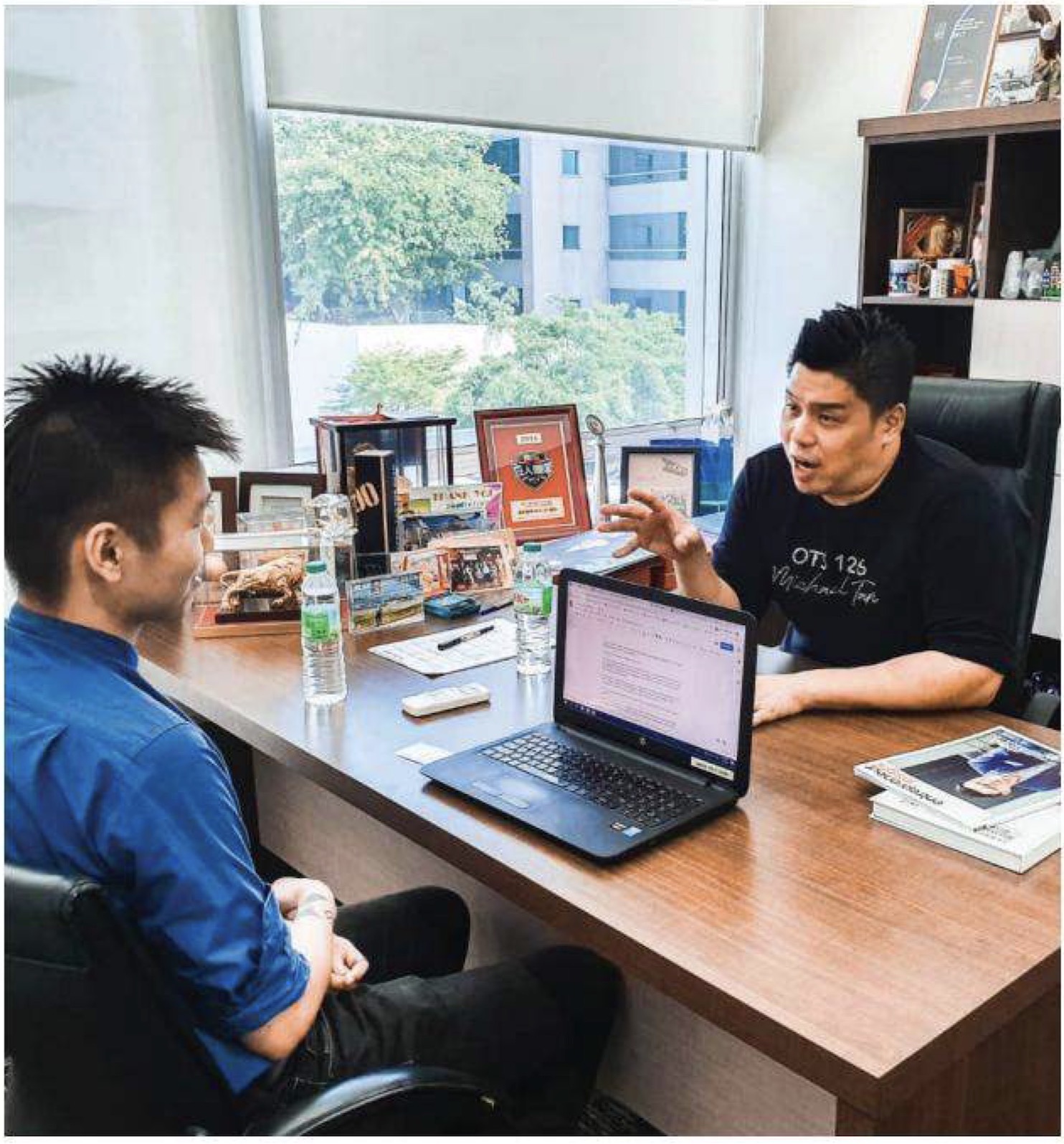THE ART OF SELLING—Wisdom from Michael Tan
Open: CleanShot 2024-08-29 at [email protected]
 By Jotham Lim
By Jotham Lim
Michael Tan, Founder of OTS Group Sdn Bhd, ventured into the world of insurance at the young age of 19. He has accumulated 23 years of selling experience since graduating from high school. Since then, he has expanded his horizons by hosting team building sessions, public speaking engagements, and seminars for organisations, both large and small.
Entrepreneur Insight had the pleasure of sitting down with Michael to share his wisdom and understand his salesmanship thought process.
What Are the Rookie Mistakes You Often See in New Recruits?
Young working adults entering the marketplace are full of drive and passion. They take pride in their work, which reflects in the way they sell their products. However, these young people need to understand that salesmanship is a tough career, with plenty of struggles and even more rejections, which can sap all the passion out of them.
There will come a time when you can’t deal with rejection and can’t overcome the obstacles in your career. Hence, the first thing you should do is surround yourself with the right people. You need support from your family, colleagues, spouse, and anyone who truly cares about you.
How Do You Deal with Rejections Then?
If you qualify ten customers and get rejected ten times, does that mean you are a failure? Of course not!
With each rejection, you grow more as a person, understanding what you are lacking. You need to conduct proper case studies and personal evaluations to understand why you were rejected in the first place. The next time you approach another ten customers and manage to close a single sale, it means you are improving and on the right track.
Being rejected is normal and good for you, and many people understand that logically. However, overcoming the emotional barrier is hard. That is why it is important to build up your level of confidence.
You do so by taking the time to research and truly understand your product, service, and business model.
Interesting. Can You Share More about Your Salesmanship Philosophy?
Third-rate salespeople rely on their personal connections to close a deal with people who know and trust them. Second-rate salespeople rely on their product or service concepts to close a deal. First-rate salespeople, however, sell a solution to a problem, and that is what I advocate.
You need to understand your customers’ pain points, and you do so by asking questions instead of hard-selling your products or services right off the bat. It will reach a point where it is no longer about the money or price but about the value you bring to your customers. The greater their problem, the greater the solution you provide; the more value you inject into their lives.
Please Walk Me through Your Selling Thought Process
First things first; do not sell anything that you do not understand. If you view your product as just specifications and numbers, you will never understand its true value.
Here is what I mean by fully understanding your customers and products:
A property in the city outskirts may see a drop in value due to its distance from the customer’s workplace. But what if your customer loves nature? What would nature-loving customers value?
A 15-minute walk to the nearest LRT station is no longer a chore but a form of exercise. If the workplace is 15 stations away, it also means an empty carriage with plenty of good seats. The 30-minute ride to work can be spent reading news or magazines. By the time the customer reaches the office, they are well-informed or energised.
Now, would the customer be more inclined to purchase the property?
If You Could Turn Back Time and Meet Yourself When You Started Out, What Would You Say to Yourself?
18-year-old Michael, you need to help more people, not for your own personal benefits or expected returns but because of who you are.
There is a Chinese proverb, “用生命影响生命,” which translates to “use your life to influence other people’s lives.” The more people you help, the more value you add to your own life. So please be humble and cherish every relationship you have because it may last forever.
If you embody this mindset, you will not only be a great salesperson but also a decent human being.
CUSTOMERS VS CLIENTS
When dealing with businesses, you need to shift away from a selling mindset to forming partnerships and collaborations. Customers buy once, but clients are repeating customers with whom you have established a strong relationship.
During the early stages of a business partnership, you gauge each other’s attitudes and test the waters. As you progress to a mid-term relationship, you start to discuss the benefits formed via the partnership. But if you truly want to establish a long-term relationship, gauge each other’s character, understand each other’s business models, and figure out if you gel well together or not.